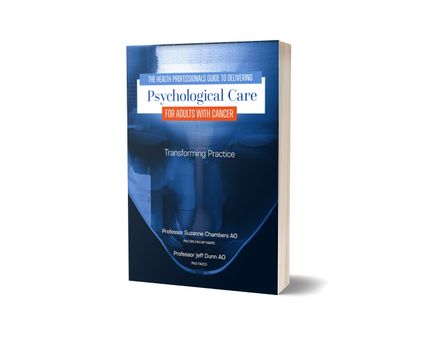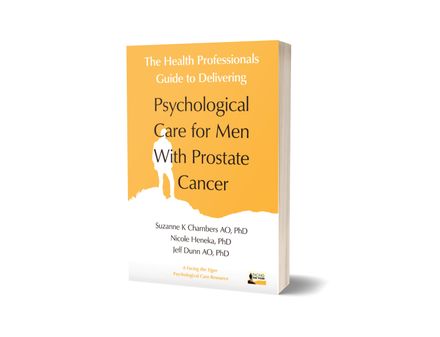Psychological Care for Adults with Cancer
By Prof. Suzanne Chambers AO, Prof. Jeff Dunn AO and A/Prof. Nicole Heneka
Nurses, doctors, and allied health professionals working in cancer care routinely encounter psychological distress, yet there is often limited clarity about what everyday psychological support should look like within routine oncology practice, and when specialist referral is required. This lack of shared understanding can lead to variation in care, clinician uncertainty, and unnecessary escalation to already stretched specialist services.
Low-intensity psychological approaches offer a practical way to support people experiencing mild to moderate distress within routine cancer care, without replacing specialist psychological treatment. When used appropriately, they help clinicians respond with confidence, support patient self-management, and identify when escalation to specialist care is needed. They’re inexpensive, accessible and support existing staff. Their use in a variety of health settings is recommended by the World Health Organization. They enhance a patient’s personal agency, encouraging them to manage their own lived experience to promote mastery of their wellbeing. In a cancer setting, this care level provides additional support for people experiencing mild to moderate distress. It provides direction on brief face-to-face sessions that can be integrated into routine medical appointments, making it easier for patients to receive support without the need for additional visits. During these sessions, healthcare providers can offer emotional support, teach coping strategies, and address any immediate psychological concerns. The brief nature of these interactions ensures that they are manageable for both patients and providers while still giving meaningful support.
Importantly, these approaches are not intended to turn non-psychologists into therapists. Instead, they help define what first-line psychosocial support can appropriately and safely look like when delivered by nurses, doctors, and allied health professionals as part of everyday cancer care, while reinforcing clear referral pathways for more complex or persistent distress.
As highly experienced researchers and practitioners in the psychological and social aspects of cancer care, the authors use low-intensity psychological interventions to create ground-breaking resources to tackle the challenge of filling the gaps that remain in the accessibility and delivery of psychological support for cancer patients. Currently, across Australia over 200 nurses, psychologists , counselors, and GPs make use of these resources.
The low-intensity psychological intervention based resources currently available to help health professionals working in cancer are:
The Health Professionals Guide to Delivering Psychological Care for Adults with Cancer
This Guide supports nurses, doctors, and allied health professionals by providing a shared reference for responding to psychological distress as part of routine cancer care, and for recognising when escalation to specialist psychological support is required.
The Health Professionals Guide to Delivering Psychological Care for Men With Prostate Cancer
This is part of the Facing the Tiger psychological care approach for prostate cancer and supports nurses and other health professionals to provide practical, accessible psychological support as a part of the regular care they deliver to men with prostate cancer within the boundaries of first-line psychosocial support.
Facing the Tiger: A survivorship guide for men with prostate cancer and their partners
As part of the Facing the Tiger psychological care approach for prostate cancer, this patient self-help book focuses on the day-to-day worries and concerns of men with prostate cancer and their partners. It is the most sought-after patient resource for prostate cancer in Australia.




